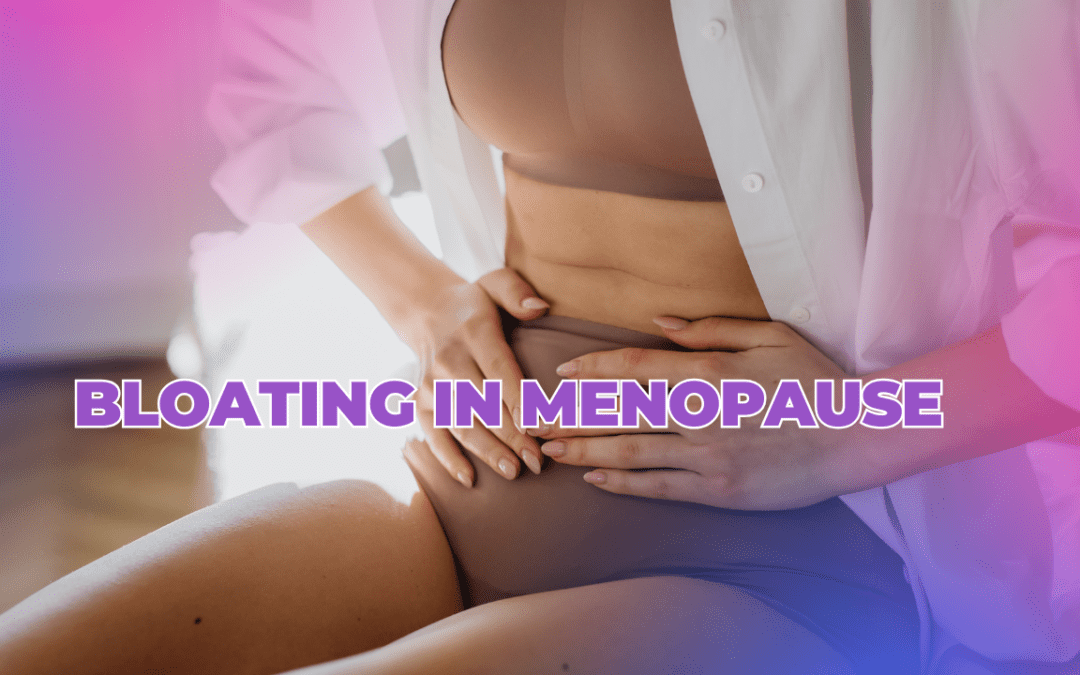Menopause brings significant hormonal changes, and one of the most common yet frustrating symptoms is bloating. Many women experience a swollen abdomen, discomfort, and digestive issues as their hormone levels fluctuate. Understanding why this occurs and how to manage it effectively can improve overall well-being during this transition.
What Causes Hormonal Bloating in Menopause?
Hormonal bloating during menopause is primarily linked to changes in estrogen and progesterone levels. Several physiological factors contribute to this issue:
- Hormonal Fluctuations: Estrogen and progesterone regulate water retention and digestion. When estrogen levels drop and progesterone fluctuates, the body tends to hold onto more water, leading to bloating.
- Slower Digestion: The digestive system slows down as estrogen declines, causing food to move through the intestines at a slower rate, increasing gas production and bloating.
- Increased Gas Production: Lower estrogen levels can lead to imbalances in gut bacteria, resulting in more gas and bloating.
- Higher Cortisol Levels: Menopause-related stress can elevate cortisol, which influences water retention and inflammation, worsening bloating symptoms.
- Dietary Sensitivities: Changes in gut microbiome can make menopausal women more sensitive to certain foods, such as dairy or gluten, leading to bloating and discomfort.
Symptoms of Hormonal Bloating
Recognizing hormonal bloating symptoms can help differentiate it from other digestive issues. Common signs include:
- Abdominal swelling: A noticeable increase in abdominal girth, making clothes feel tighter.
- Fullness and heaviness: A persistent sensation of being full, even after small meals.
- Gas and belching: An increase in flatulence due to trapped air in the digestive tract.
- Fluctuating bloating: Bloating that comes and goes rather than remaining constant.
- Digestive irregularities: Alternating episodes of constipation and diarrhea.
Effective Ways to Reduce Menopausal Bloating
Managing bloating involves a combination of lifestyle changes, dietary modifications, and medical interventions. Here are the most effective strategies:
1. Dietary Adjustments
Making smart dietary choices can significantly reduce bloating. Consider the following:
- Increase Fiber Intake: Eating fiber-rich foods like fruits, vegetables, and whole grains promotes regular bowel movements, reducing bloating caused by constipation.
- Limit Processed Foods: Processed foods often contain high levels of sodium, which can increase water retention and bloating.
- Reduce Gas-Producing Foods: Limit beans, carbonated drinks, cruciferous vegetables (broccoli, cabbage, and Brussels sprouts), and artificial sweeteners that contribute to excess gas.
- Stay Hydrated: Drinking plenty of water helps maintain fluid balance and prevent water retention.
- Monitor Dairy and Gluten Intake: Some women develop sensitivities to lactose and gluten during menopause. Eliminating these for a trial period can determine whether they contribute to bloating.
2. Regular Physical Activity
Exercise plays a crucial role in reducing bloating and improving digestion. Incorporate:
- Cardio Exercises: Activities like walking, jogging, or cycling stimulate digestion and reduce water retention.
- Strength Training: Building muscle can help improve metabolic rate and regulate hormonal balance.
- Yoga and Stretching: Certain yoga poses, such as twists and forward bends, can alleviate gas and bloating.
3. Stress Management
High stress levels can worsen bloating due to increased cortisol production. Effective ways to manage stress include:
- Deep Breathing Techniques: Practicing diaphragmatic breathing can help relax abdominal muscles and improve digestion.
- Meditation and Mindfulness: Reducing stress through mindfulness practices can lower cortisol levels and alleviate bloating.
- Adequate Sleep: Ensuring at least 7-9 hours of quality sleep can help regulate hormones and prevent excessive water retention.
4. Medical Interventions
For persistent bloating, medical therapies may be beneficial. Options include:
- Hormone Replacement Therapy (HRT): Balancing estrogen and progesterone through HRT may alleviate bloating and other menopause-related symptoms.
- Probiotics: Introducing beneficial bacteria through probiotic supplements can improve gut health and digestion.
- Digestive Enzymes: Some women find relief from bloating by taking digestive enzymes to aid in the breakdown of food.
- Diuretics: In cases of severe water retention, a healthcare provider may recommend mild diuretics to help reduce bloating.
How Amazing Meds Can Help
At Amazing Meds, we understand the challenges menopause brings, including hormonal bloating. Our personalized treatment plans help women manage these symptoms effectively. Our services include:
Bioidentical Hormone Replacement Therapy (BHRT)
- Customized Treatment Plans: Tailored hormone therapies to address estrogen and progesterone imbalances.
- Expert Guidance: Our specialists provide ongoing support to ensure optimal results and symptom relief.
Personalized Lifestyle Recommendations
- Nutrition Plans: Guidance on dietary modifications to minimize bloating.
- Exercise and Wellness Strategies: Recommendations for physical activity and stress management techniques.
Convenient Telemedicine Services
- Virtual Consultations: Access online HRT care from the comfort of your home.
- Ongoing Monitoring: Continuous support to adjust treatment plans as needed.
Moving Forward with Confidence
Hormonal bloating during menopause is a common but manageable condition. Understanding its causes and implementing lifestyle and medical strategies can significantly improve comfort and quality of life. Amazing Meds is here to provide the expert care and personalized solutions you need to navigate menopause with confidence and ease.
Disclaimer: This article is for informational purposes only and does not replace professional medical advice.

